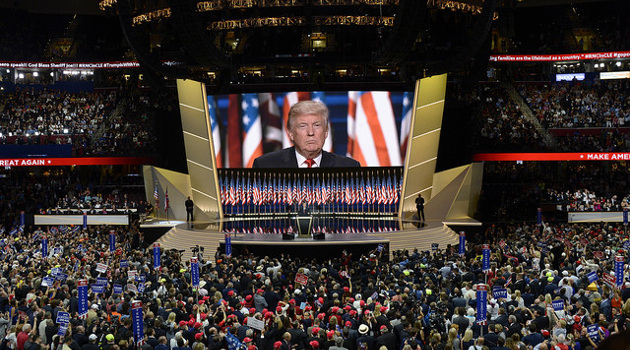Since the election of Donald Trump there’s been a lot of ink spilled regarding the state of American democracy. An interesting addition to this conversation, I think, comes from my friend Dr. Eduardo Morgan Jr., a former Panamanian ambassador to the United States. What he brings to the table is an outsider’s perspective, and I think it’s worth taking stock of how American institutions have traditionally worked to constrain authoritarianism from someone who has directly witnessed what can happen, as in South America, when such institutions are not nearly so robust.
So here is an excerpt from his article:
I was a witness during the time I attended Yale University, and then as Panama’s ambassador to the United States, of what the checks and balances of this great democracy mean. The Panama Canal’s ports, Cristóbal and Balboa, were obsolete as transshipment ports so the government of President Perez Balladares decided to privatize them. Those who won the concession would make the necessary investments to meet the load and the transshipment needs, which were the most important functions they would have as auxiliaries to the geographic position and the Canal. Major port companies from Japan and Hong Kong came to the bid, including Hutchinson Wampoa, which was perhaps the most important of them all, with ports all over the world.
The United States wanted Bechtel, one of its large companies, to obtain the concession and tried to convince the government to grant it directly, since it would make an offer that could not be rejected because of how advantageous it would be for Panama. Ultimately they convinced President Pérez Balladares to halt the bidding process to tend to the Bechtel proposal, which in the end the President deemed to be a mockery, thus discarding it immediately. The bidding went ahead and was won by the aforementioned Hong Kong Company. The United States’ reaction and fury (there is no other word to describe it) came swiftly.
Right away the six most important senators sent a note to the director of the Federal Maritime Authority stating that they had to ‘punish’ Panama for discriminating against American interests in the bidding of the ports. They talked about how they would prevent ships bearing the Panamanian flag from reaching American ports. As expected, panic spread in Panama so the government asked me, as the ambassador, to hire a law firm to advise us on the subject. A single preliminary note from lawyers cost more than $ 5,000 and I realized that the meager Embassy budget would not allow for much more. I then sent the legal adviser to the Embassy, Alfredo Suescum, accompanied by Lili Romero, who also acted as a lawyer, to find out with the officials of the Maritime Commission what could happen to us and what remedies we would have available to mitigate the damages. Alfredo and Lili returned smiling and relaxed. I asked them how long it would take the Commission to apply the penalty. Their response: ‘Ambassador, we met with the heads of the different departments and the message is: ‘Nothing will happen to Panama. This is an internal Panamanian matter and has nothing to do with us. Do not worry about the letter from the senators. It is just politics without any significance for us. Our director is also a politician, but these things we handle internally’.
This was a great lesson on the strength that democracy has in protecting officials against impositions from bosses they might have at a given time. In fact, the senators’ overblown threats deflated and besides some extreme groups’ propaganda stating that Panama was handing over the Canal to a Chinese company (they would wave the Chinese flag over the Canal in television ads), no more was spoken about the subject; there was no sanction of any kind and the Embassy saved a fortune in legal fees.
So I realized, because I experienced it, how great democracy is in that country.
You can access the article in full here.

